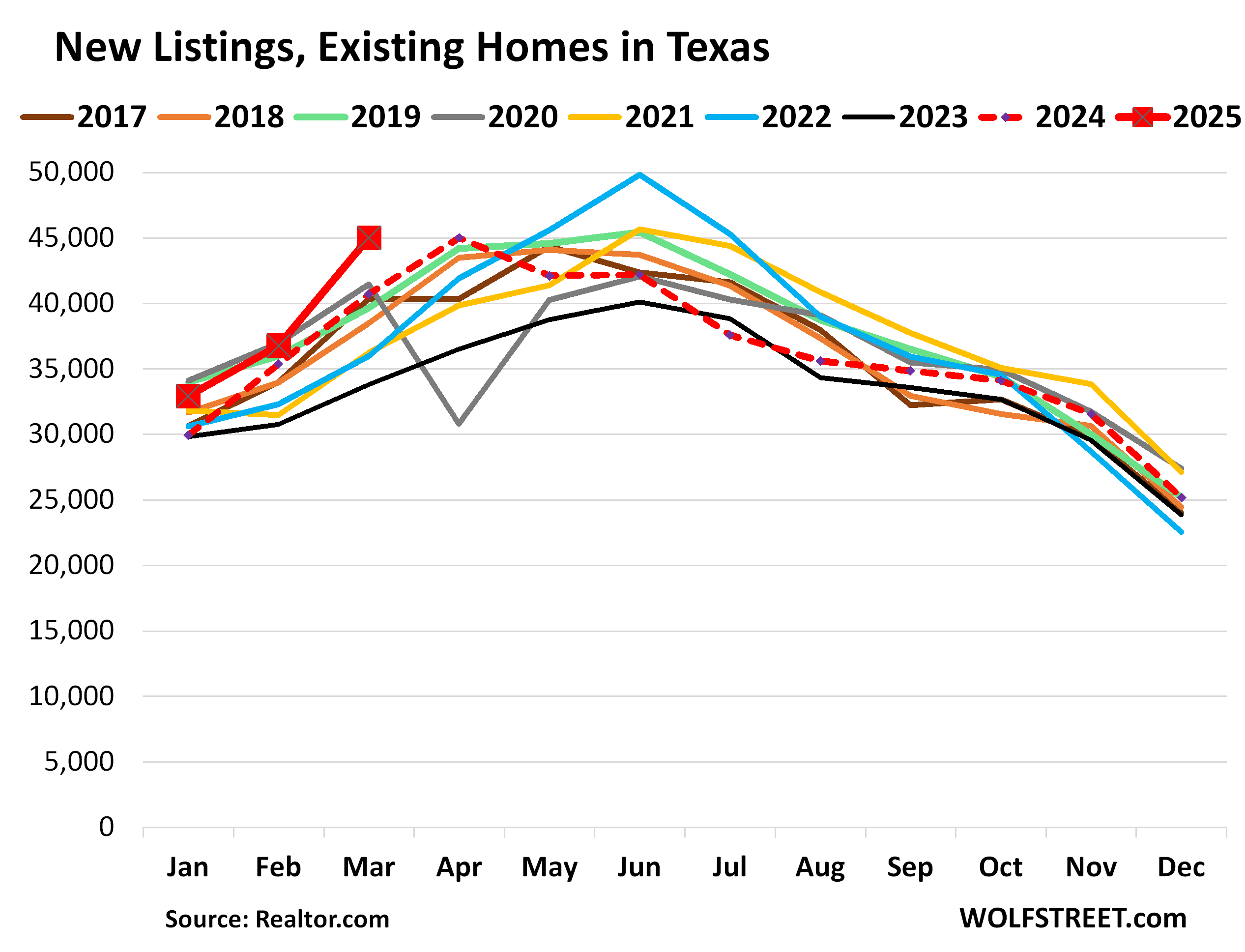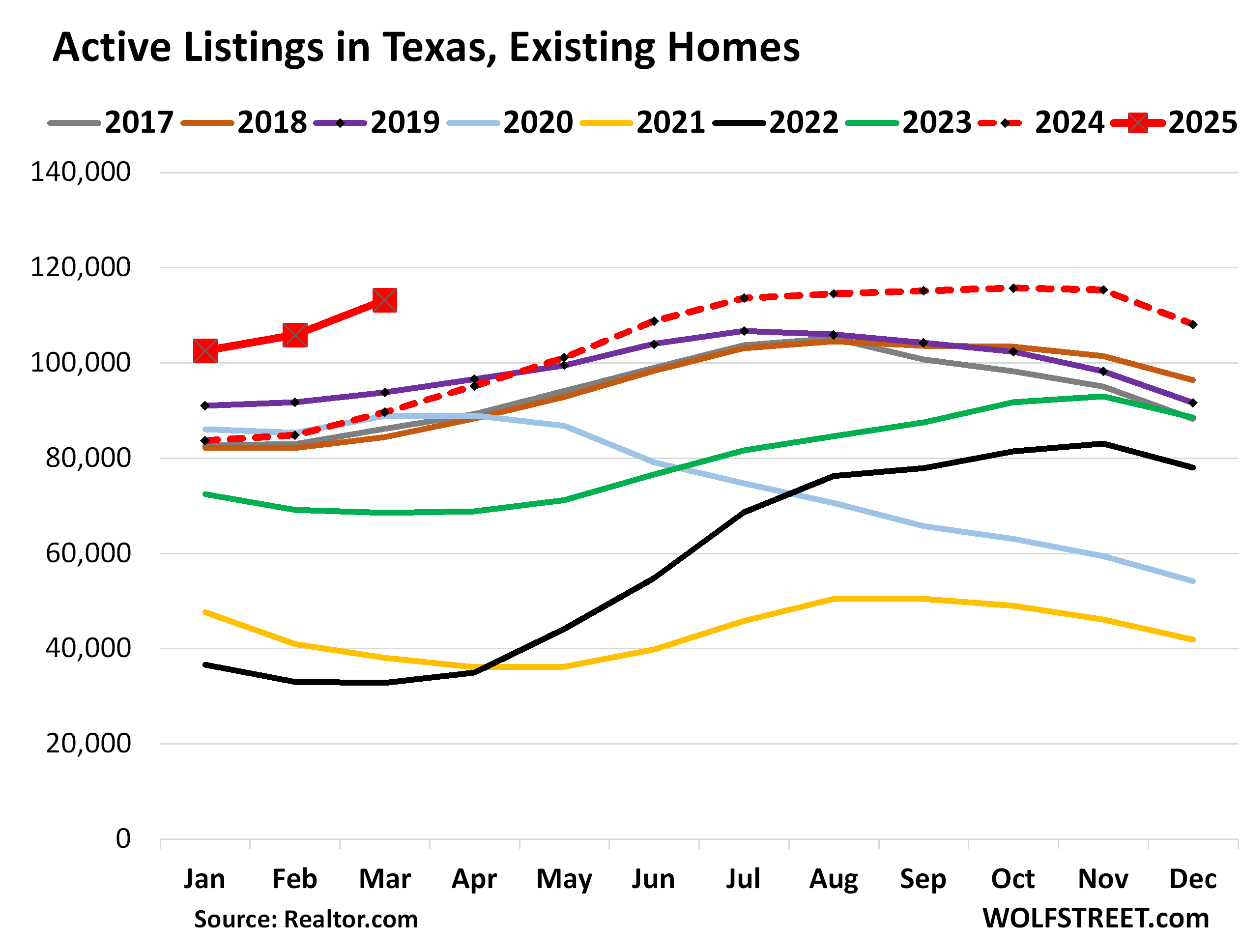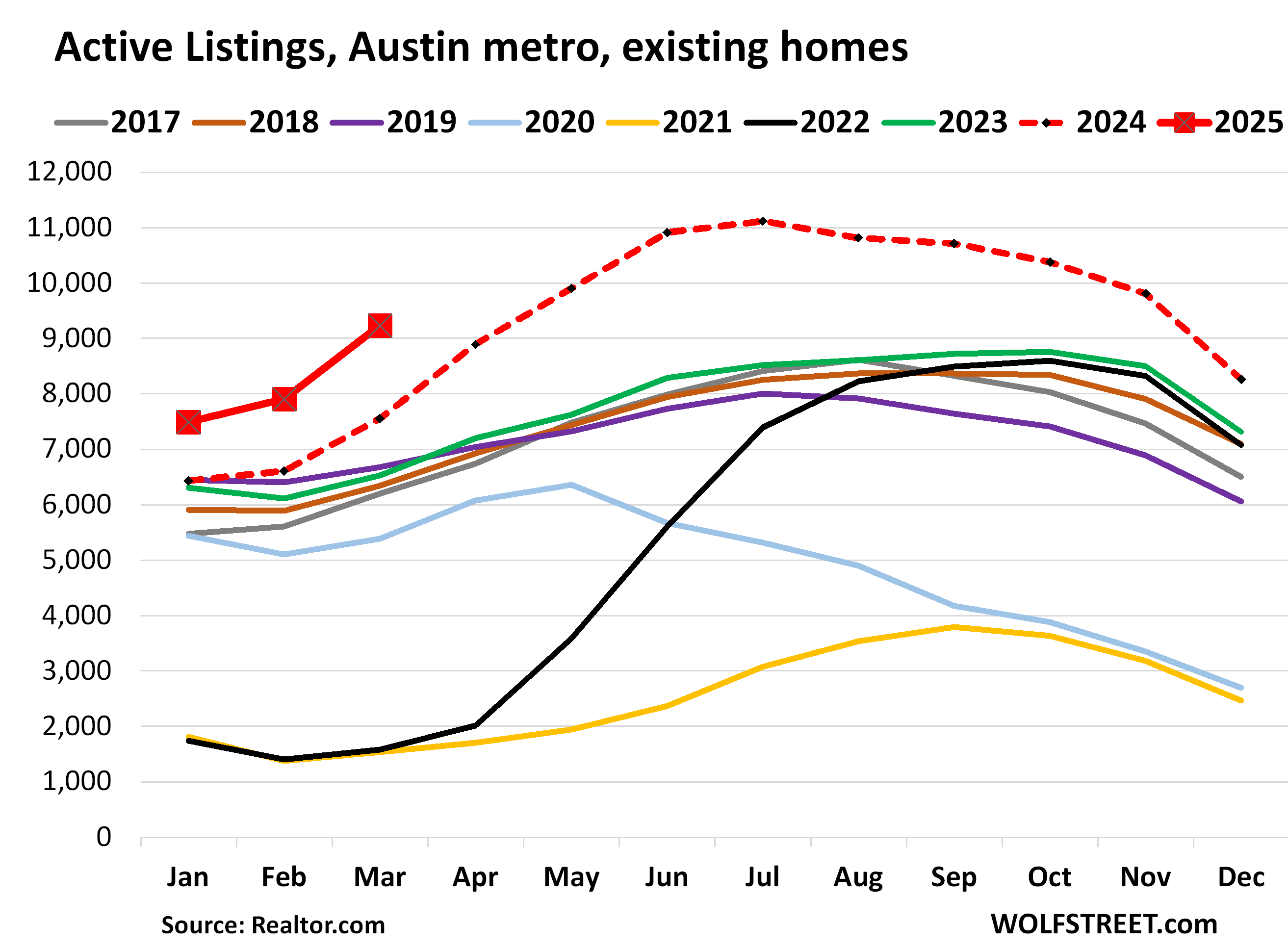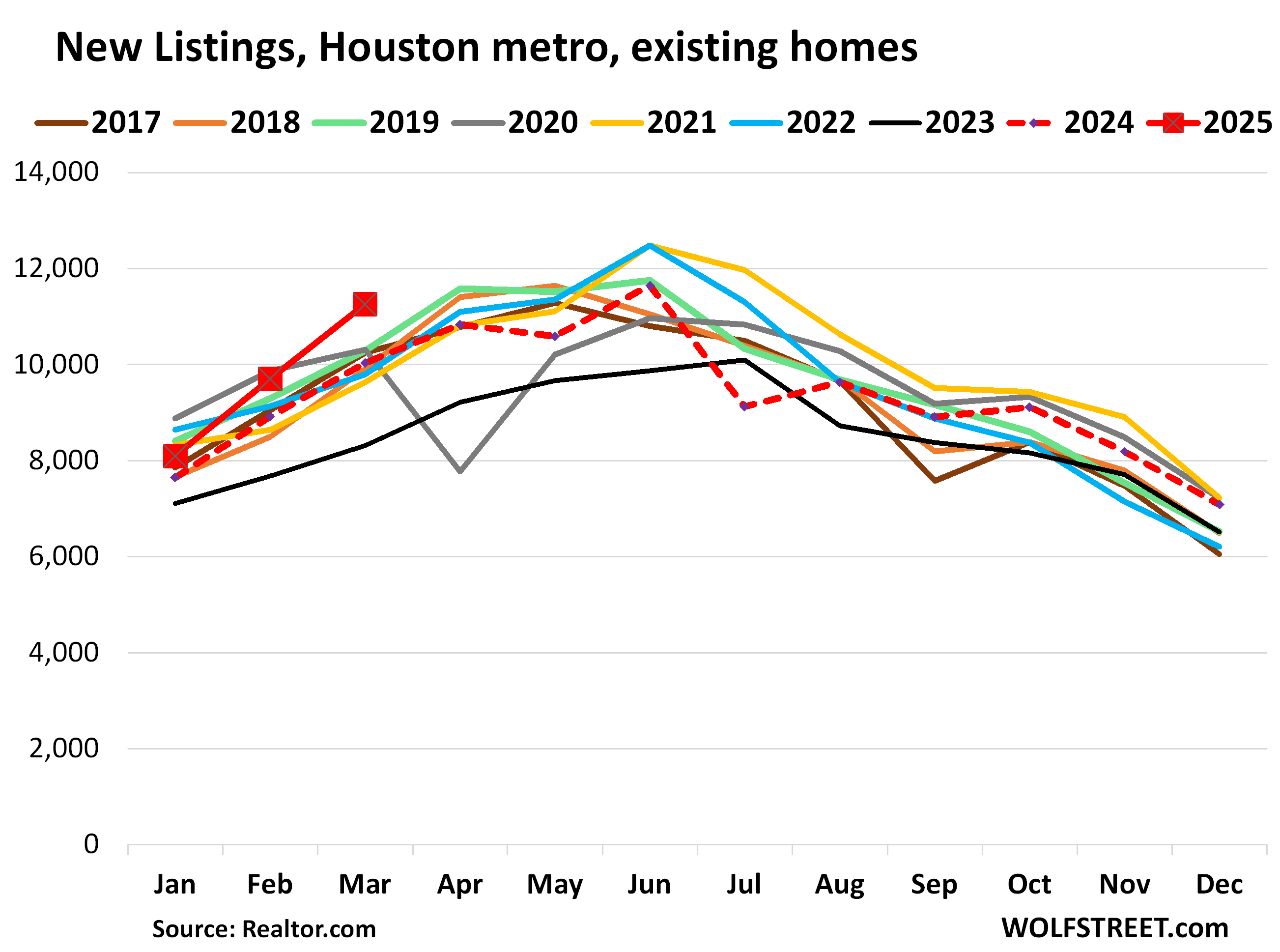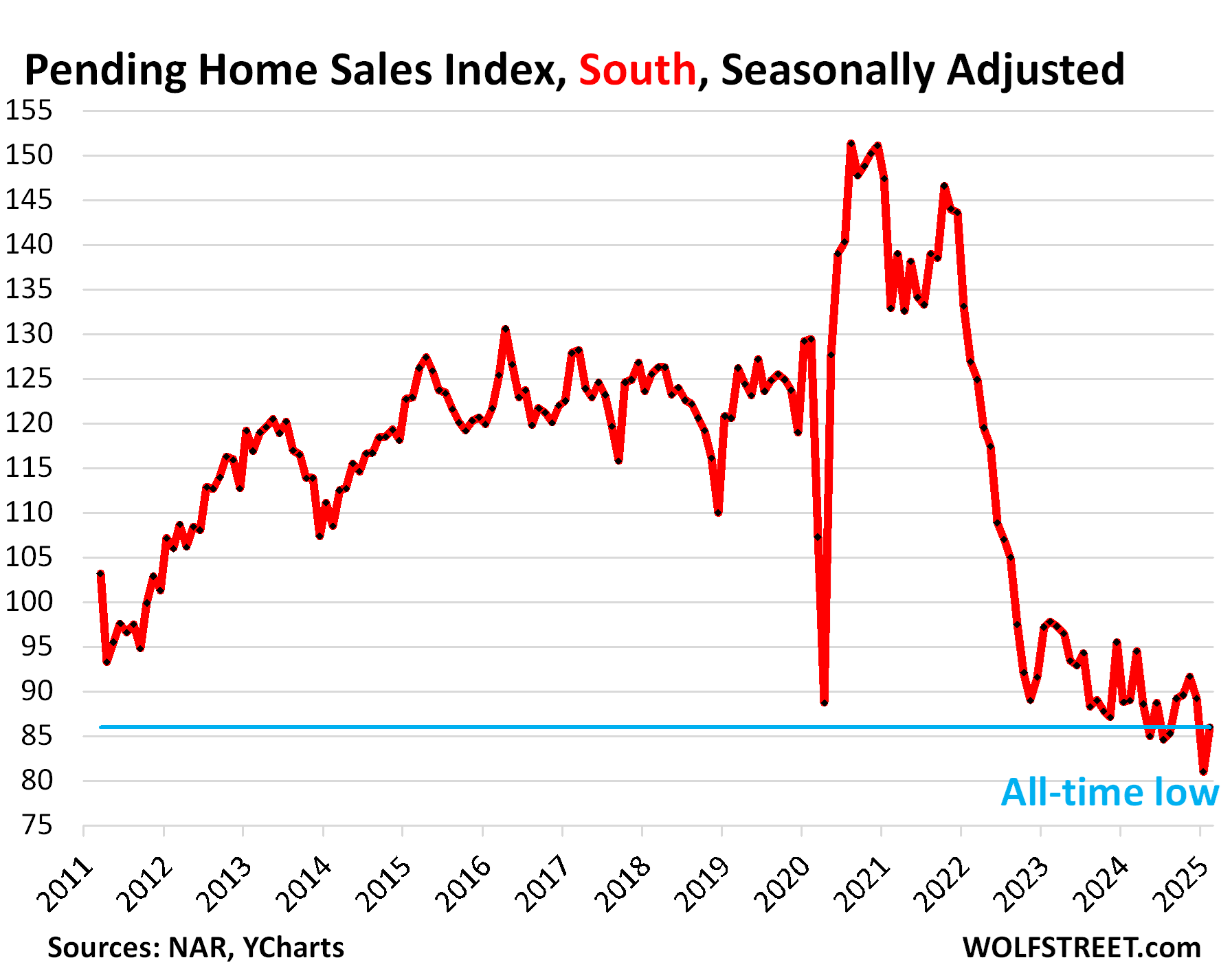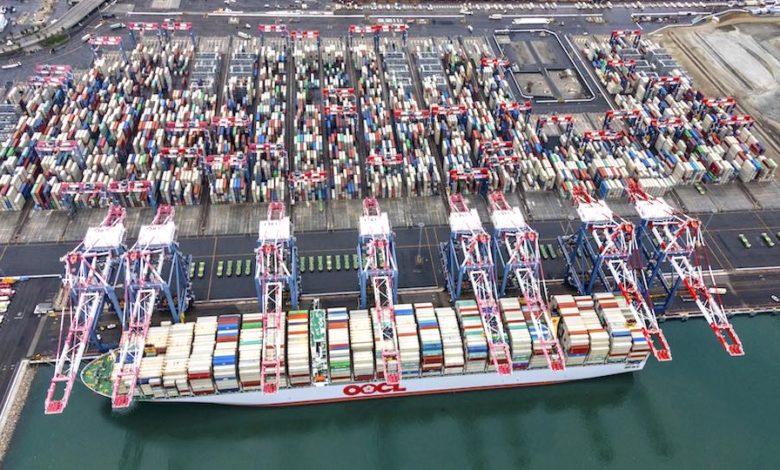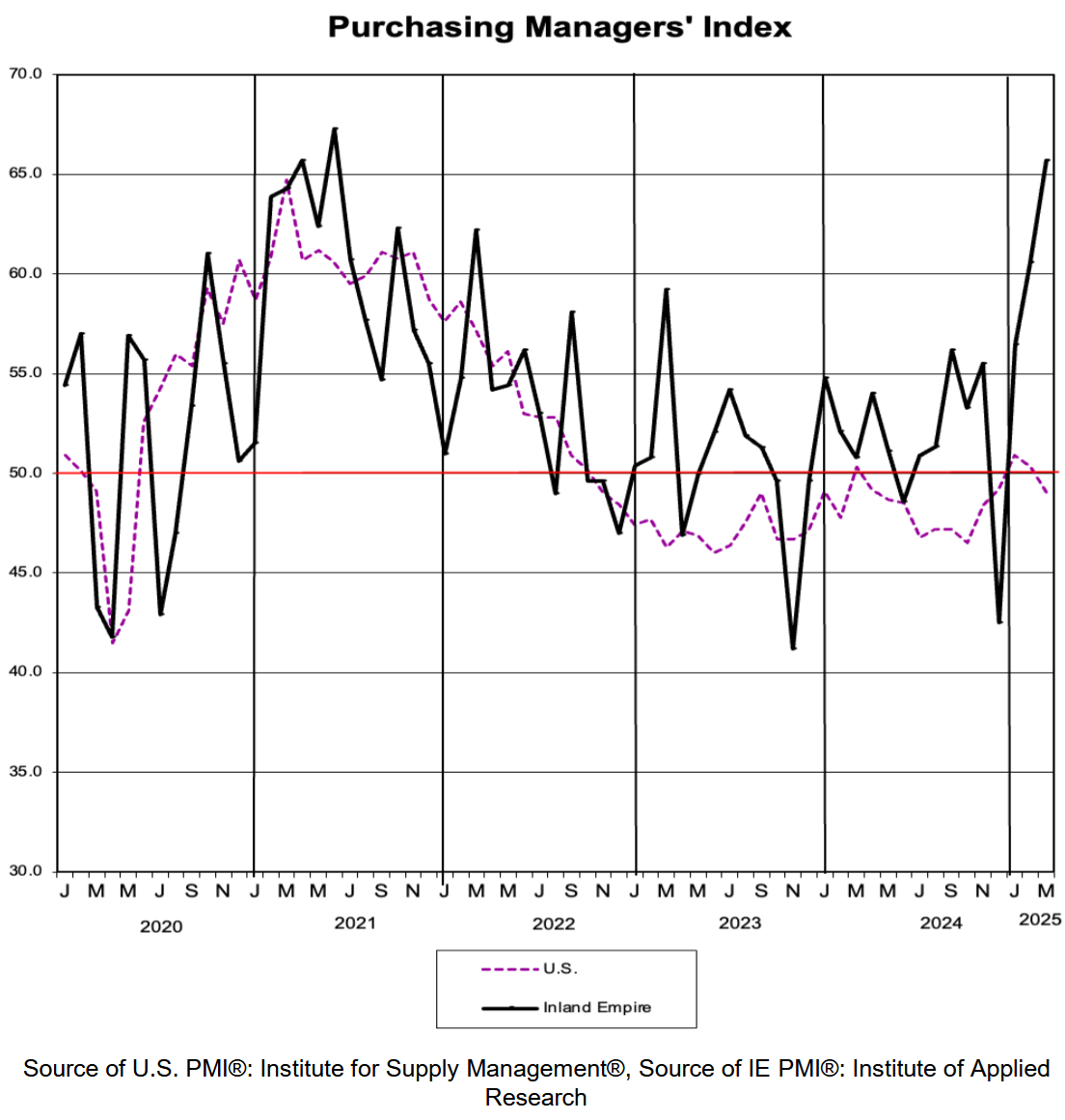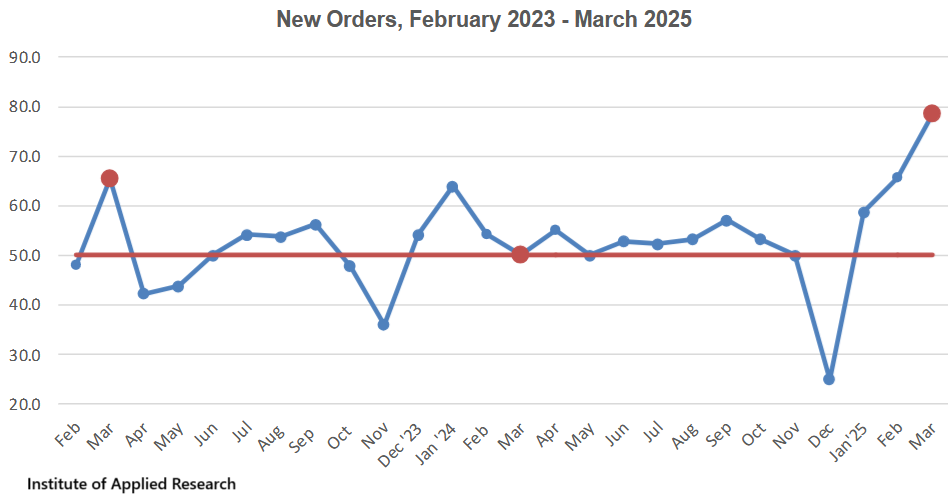Energy News Beat
The huge spike, following the selloff, evokes further parallels with the Dotcom Bust and Financial Crisis crash, in the middle of which similar spikes occurred.
By Wolf Richter for WOLF STREET.
Stock prices now reflect what the President says, rather than anything else. Even AI mania or its fizzling no longer matter. Trump’s words – and the chaos and uncertainty they engender – do. And a lot.
After he’d announced the “reciprocal tariffs” on April 2, markets spiraled down for four days. Today, at 1:18 PM Eastern Time, Trump announced on his social media site that he “substantially lowered” the reciprocal tariffs to 10% for a period of 90 days during which the White House would negotiate with its trading partners. And he said that tariffs on China would increase to 125%.
Upon the social media post, markets spiked by near-record percentages on record volume of about 30 billion shares.
The S&P 500 shot up by 9.5% to 5,457, its biggest percentage gain since October 2008 which was in the middle of the 50% Financial Crisis crash through March 2009. Today’s spike undid the last three days of the four-day rout since April 2. The index is now 3.7% below the April 2 close of 5,670 and down 11% from its high in February.
The Nasdaq Composite spiked by 12.2% to 17,125, its biggest one-day jump since January 2001, in the middle of the Dotcom Bust (March 2000 through September 2002), when the Nasdaq Composite would ultimately plunge by 78%. The index is now down 15% from its December 2024 high.
This spike occurred after Trump wrote on his social media platform, Truth Social, concerning China:
“Based on the lack of respect that China has shown to the World’s Markets, I am hereby raising the Tariff charged to China by the United States of America to 125%, effective immediately. At some point, hopefully in the near future, China will realize that the days of ripping off the U.S.A., and other Countries, is no longer sustainable or acceptable.”
And concerning the rest of the world:
“Conversely, and based on the fact that more than 75 Countries have called Representatives of the United States, including the Departments of Commerce, Treasury, and the USTR, to negotiate a solution to the subjects being discussed relative to Trade, Trade Barriers, Tariffs, Currency Manipulation, and Non Monetary Tariffs, and that these Countries have not, at my strong suggestion, retaliated in any way, shape, or form against the United States, I have authorized a 90 day PAUSE, and a substantially lowered Reciprocal Tariff during this period, of 10%, also effective immediately. Thank you for your attention to this matter!”
The existing tariffs on imports from Canada and Mexico — 25% on goods not covered by the USMCA — remains unchanged, and would not be subject to the additional 10% tariffs.
The pause and 10% tariffs during it would not apply to sector-specific tariffs, which would continue as announced before; but would only to the reciprocal tariffs, Bessent later clarified.
The reciprocal tariffs as announced on April 2 on imports from nearly 100 countries, including a 104% tariff on Chinese imports, became effective overnight. Today’s announcement replaced them with a 10% tariff for the next 90 days, and it replaced that 104% tariff on Chinese imports with a 125% tariff. But China is the elephant in the room:
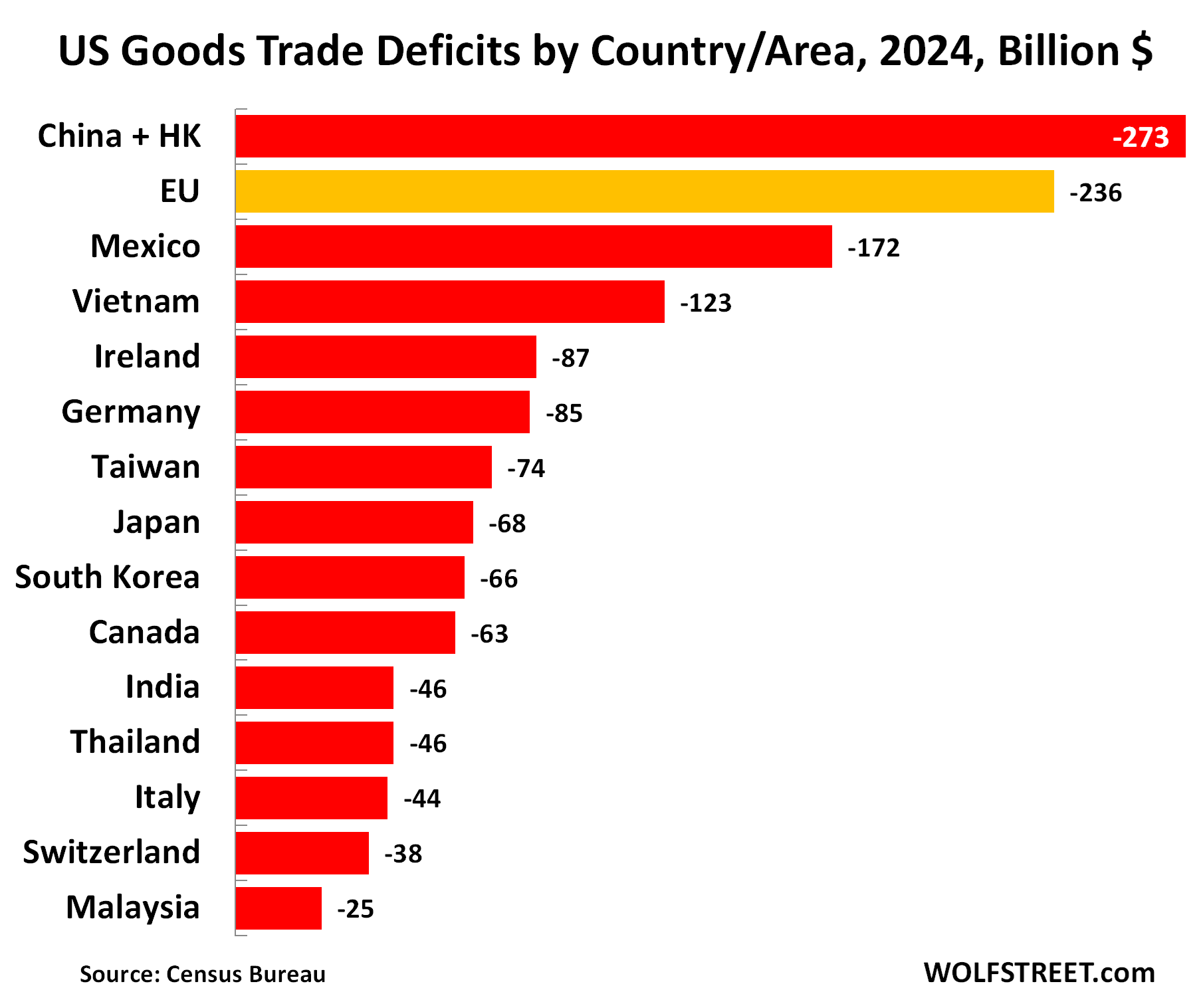
The issue is not only tariffs but regulations and administrative barriers that keep US products out of other countries. The EU and Japan use them extensively, and they will be up for negotiations over the next 90 days.
The White House will not release a list of the 75 countries that have offered to negotiate the reciprocal tariffs, it told NBC News.
Trump, accompanied by auto racing champions, told reporters at the White House that he’d paused the reciprocal tariffs becaus:
“I thought that people were jumping a little bit out of line,” he said. “They were getting yippy, you know, they were getting a little bit yippy, a little bit afraid, unlike these champions, because we have a big job to do.”
“No other president would have done what I did.… And it had to be done,” he told reporters. “You have to have flexibility,” he said.
So now we’re down to stock markets spiking or plunging in a huge manner based on what the President says. It’s no longer earnings or revenue growth or AI mania or whatever. But presidential announcements. This is what happens when edgy traders and algos and people thinking all this is a video game react, after the gigantic run-ups of stock prices in recent years to these precariously lofty levels.
But the huge spike, following the selloff, also evoked further parallels with the Dotcom Bust and the crash of the Financial Crisis, during the middle of which these types of spikes had occurred.
Slightly smaller spikes also occurred during the March 2020 crash, but by that time the Fed had already unleashed mega-QE and 0% interest rates. Now the Fed is sitting on 4.25-4.5% policy rates to wait and see, while continuing with $20 billion a month in QT, which has already shaved off $2.24 trillion from its balance sheet.
Enjoy reading WOLF STREET and want to support it? You can donate. I appreciate it immensely. Click on the mug to find out how:
![]()
The post Trump Speaks and Stocks Spike, after Trump Spoke and Stocks Plunged (Makes You Wonder, Why even Own Stocks?) appeared first on Energy News Beat.






